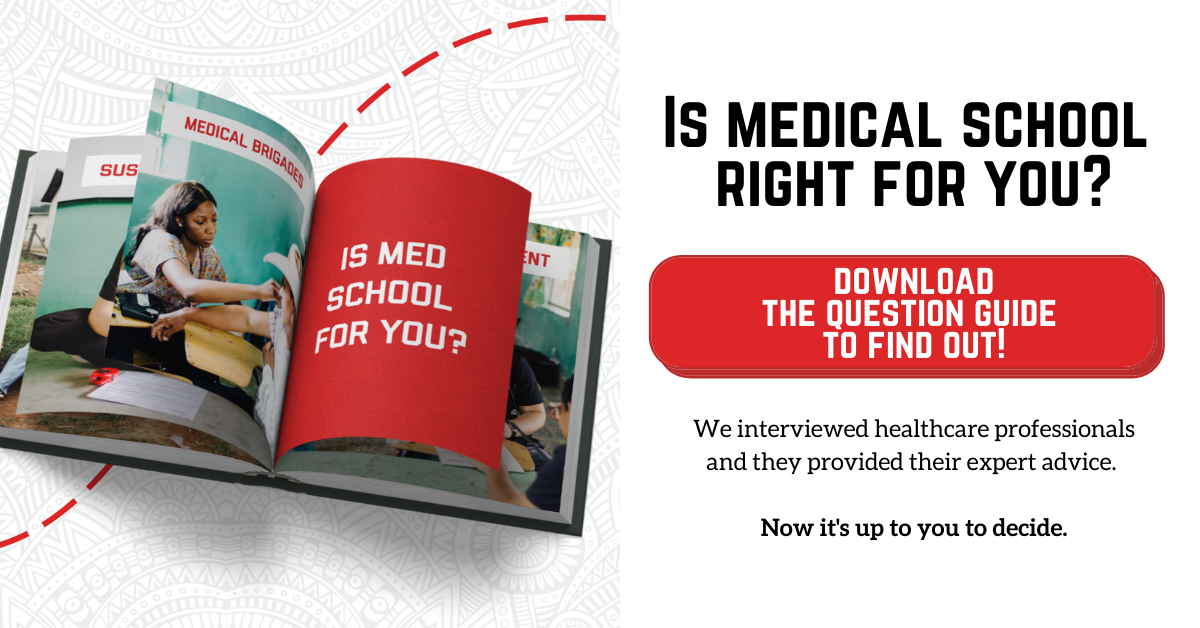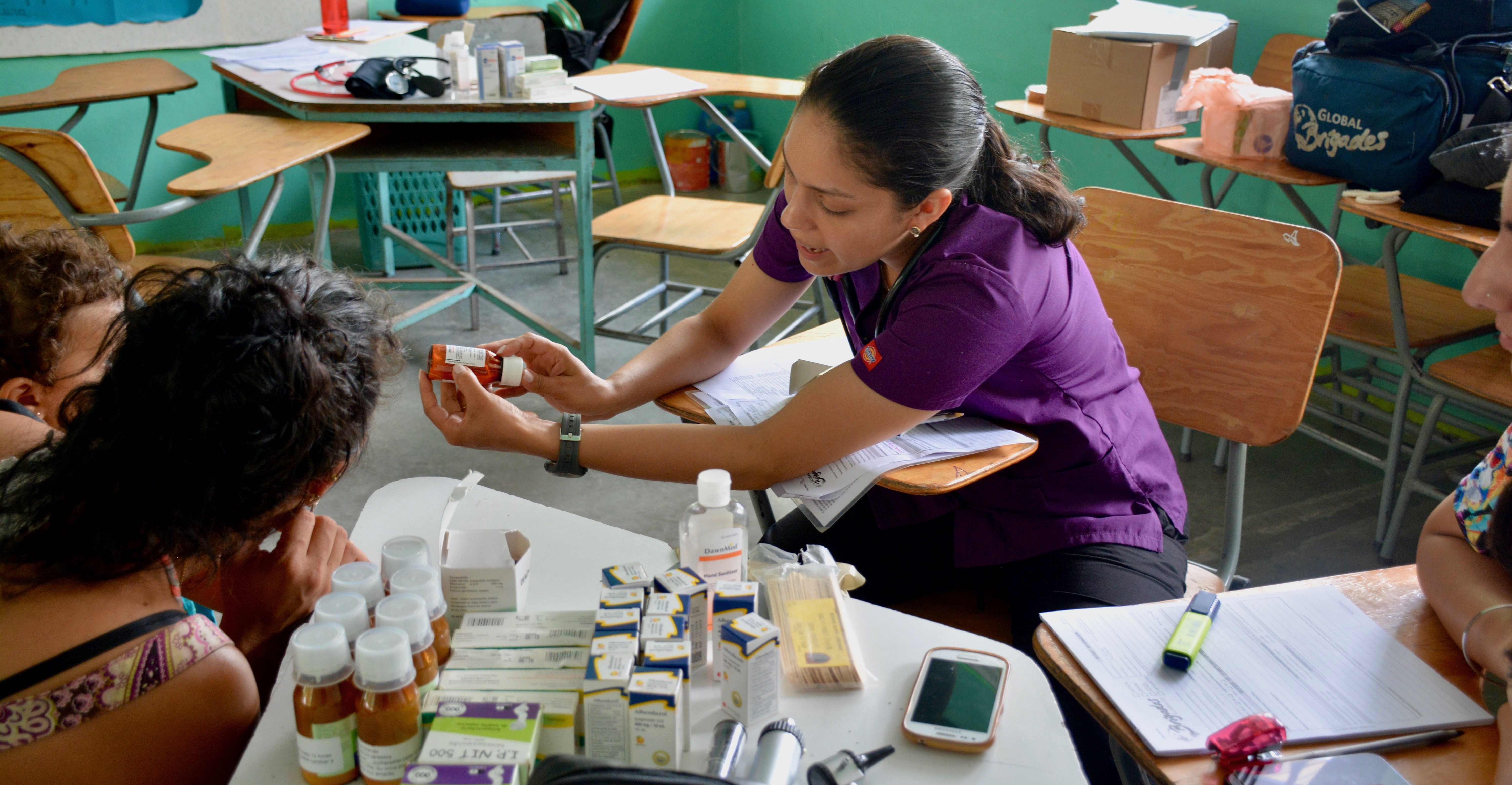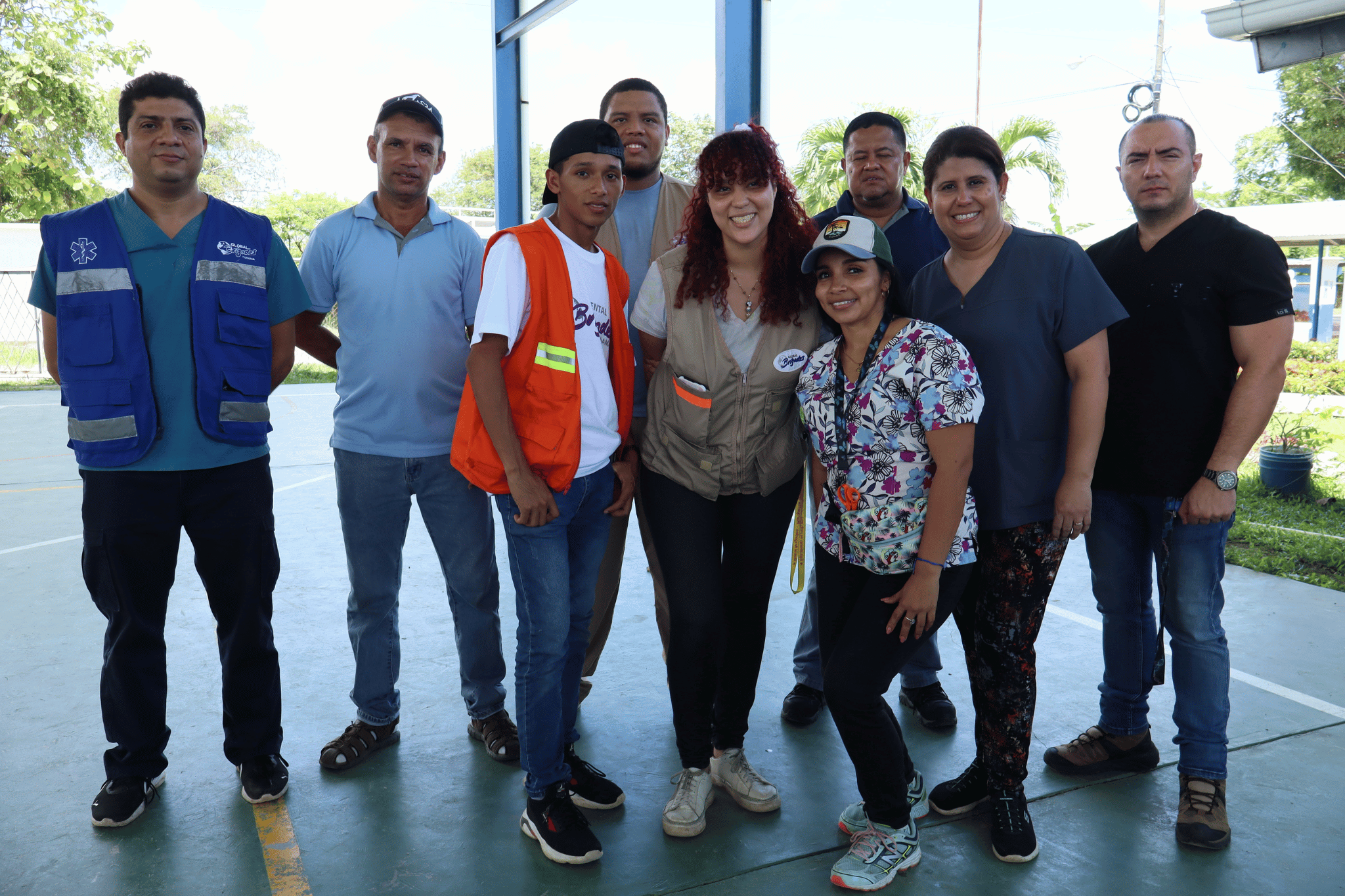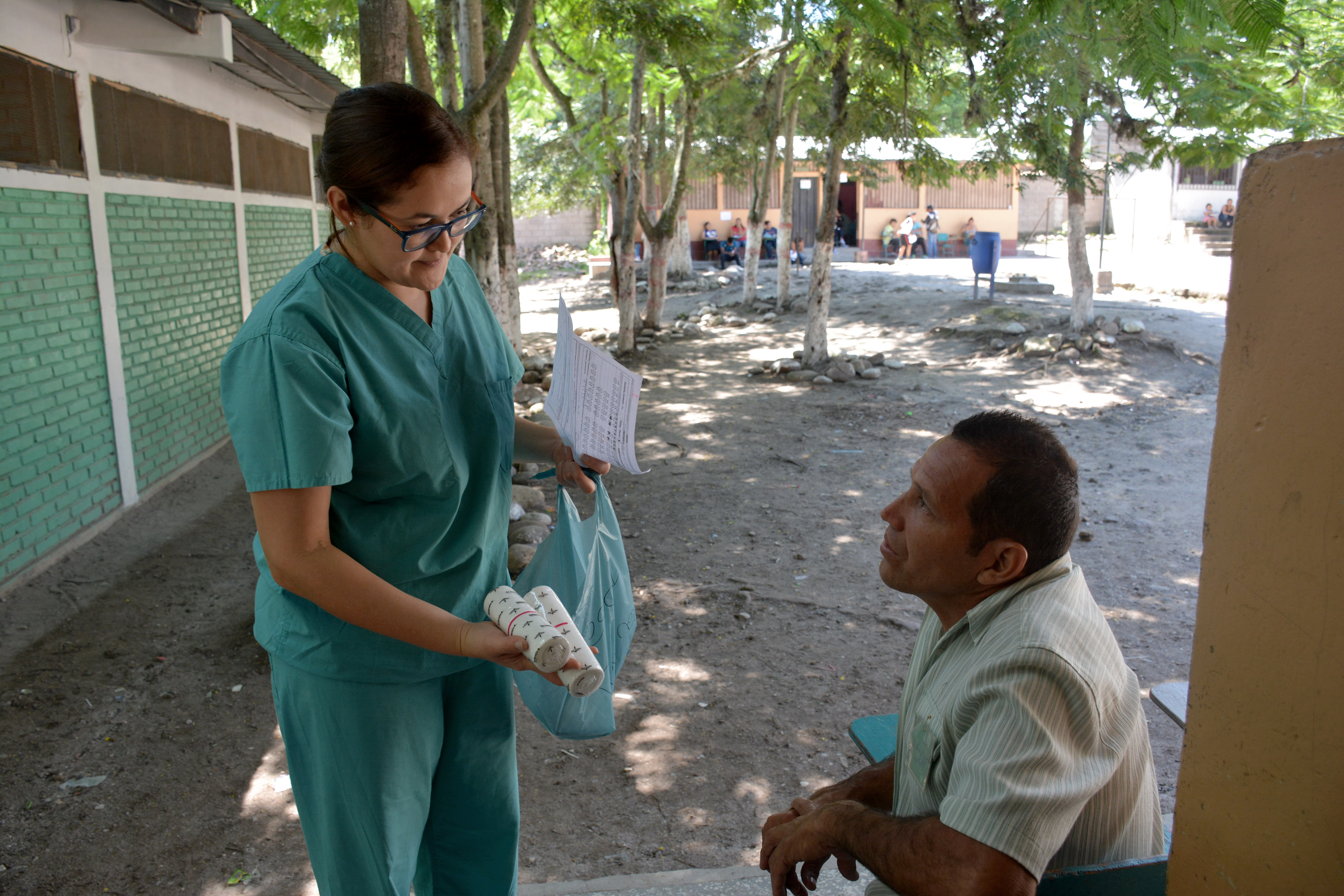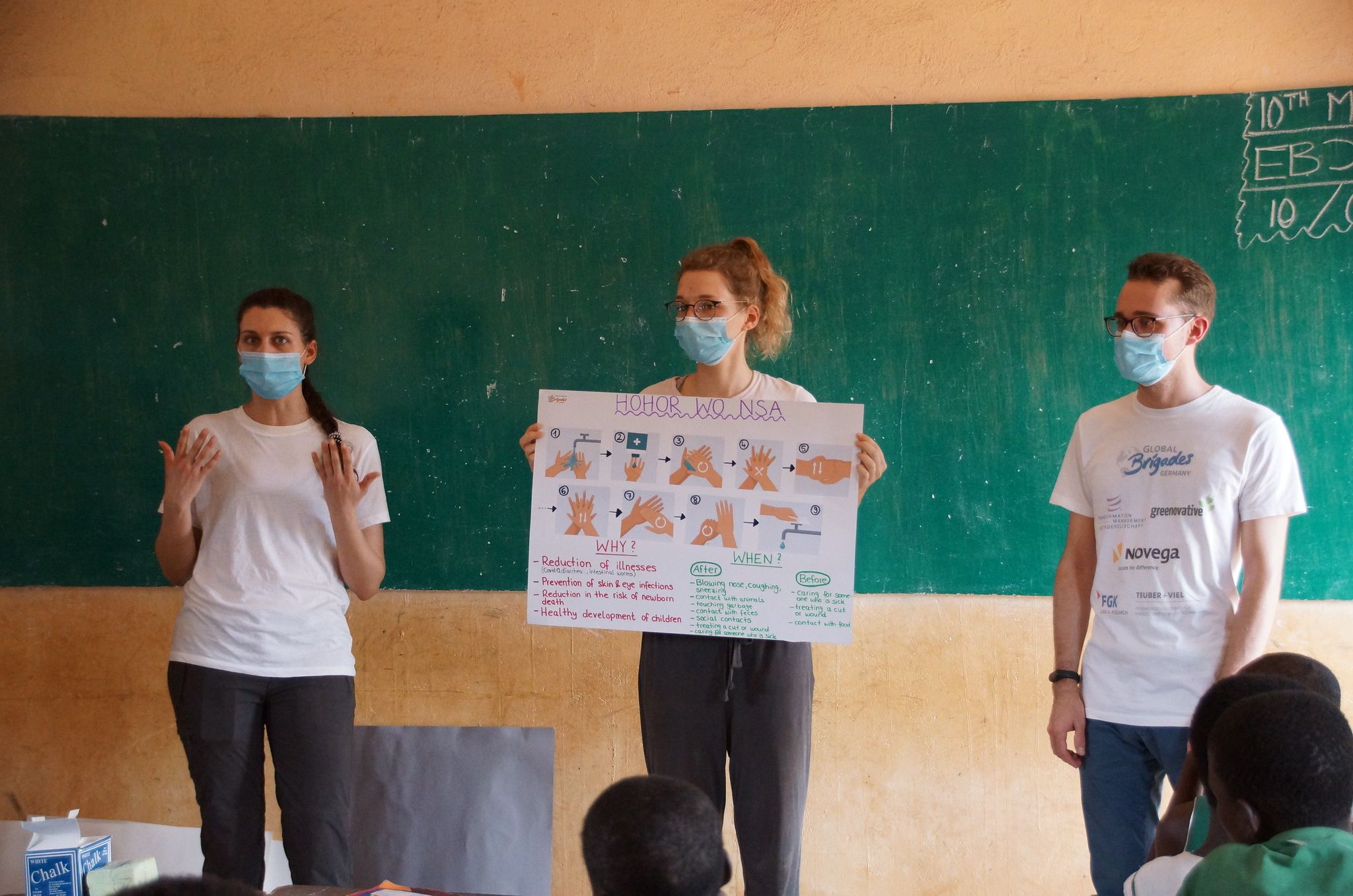Written by Senior Marketing Associate Sydney Colbert and GB Honduras Program Associate Manager Yessica Rodriguez
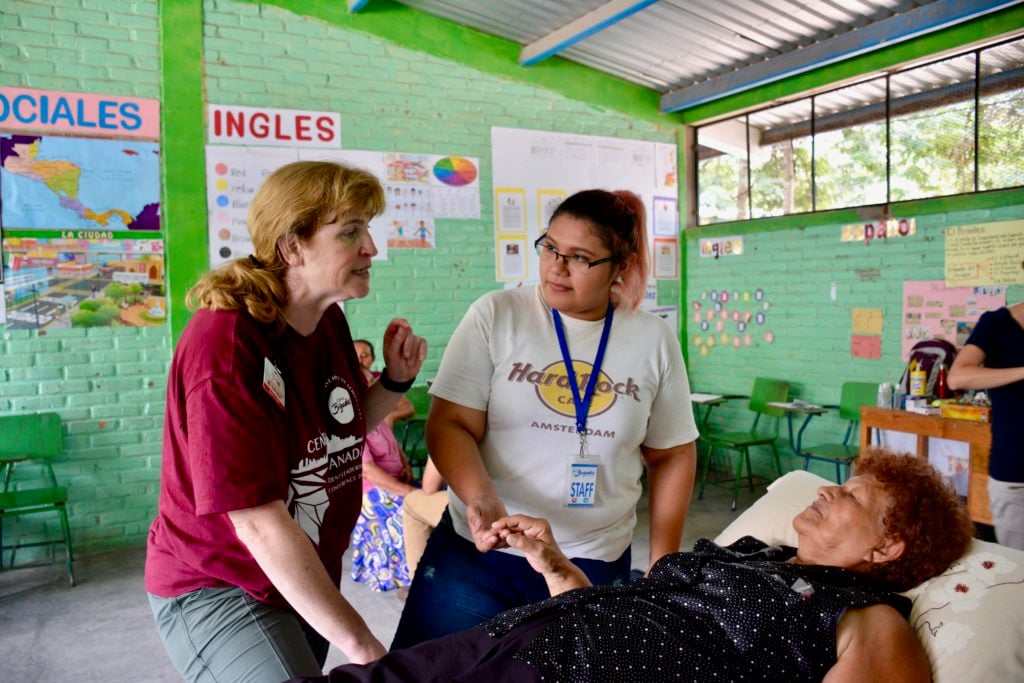
The Benefits of Being Bilingual in Healthcare
If you’re reading this blog post, you already know that learning a new language can be scary. A quivering voice, sweaty palms, and an elevated heart rate are just a few of the things that you may experience when first attempting to practice your new language skills. But breaking through these initial barriers can lead you on a path to transform not only your career but also the lives of the patients you’ll care for.
“Nearly 6 in 10 Hispanic adults have had a difficult time communicating with a health care provider because of a language or cultural barrier, and when they do they often turn to outside sources for help, according to a new study conducted by The Associated Press-NORC Center for Public Affairs Research.”
– source
If you want to improve the quality of your services and develop stronger communication skills with Spanish-speaking patients, you’ll want to learn some Medical Spanish basics. At Global Brigades, we’re dedicated to resolving health disparities, and one way we practice this is by empowering our volunteers to collaborate with community members. That’s why our team has created this resource to support GB volunteers on their journey toward becoming stronger medical professionals and impactful Global Citizens. Check out the guide below!
Initial interaction with patients
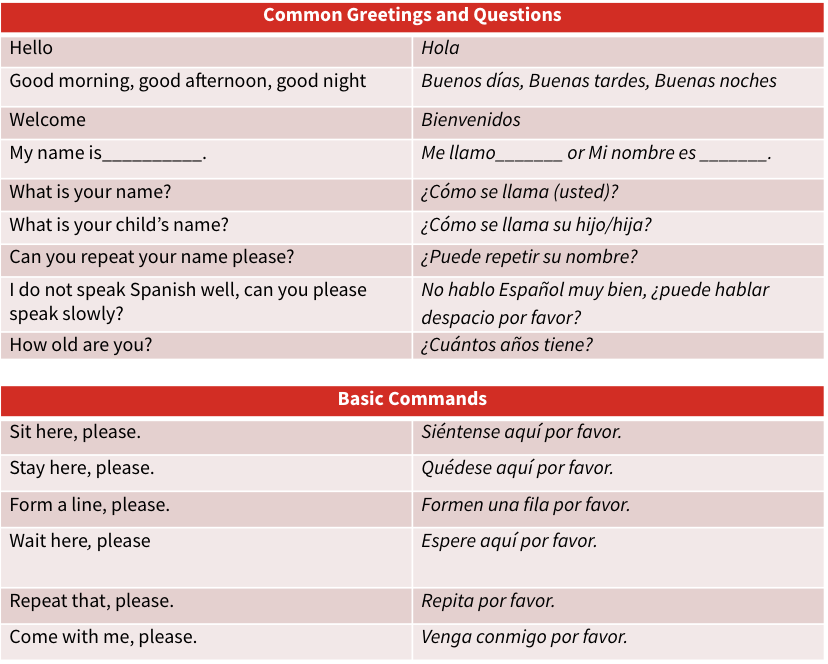
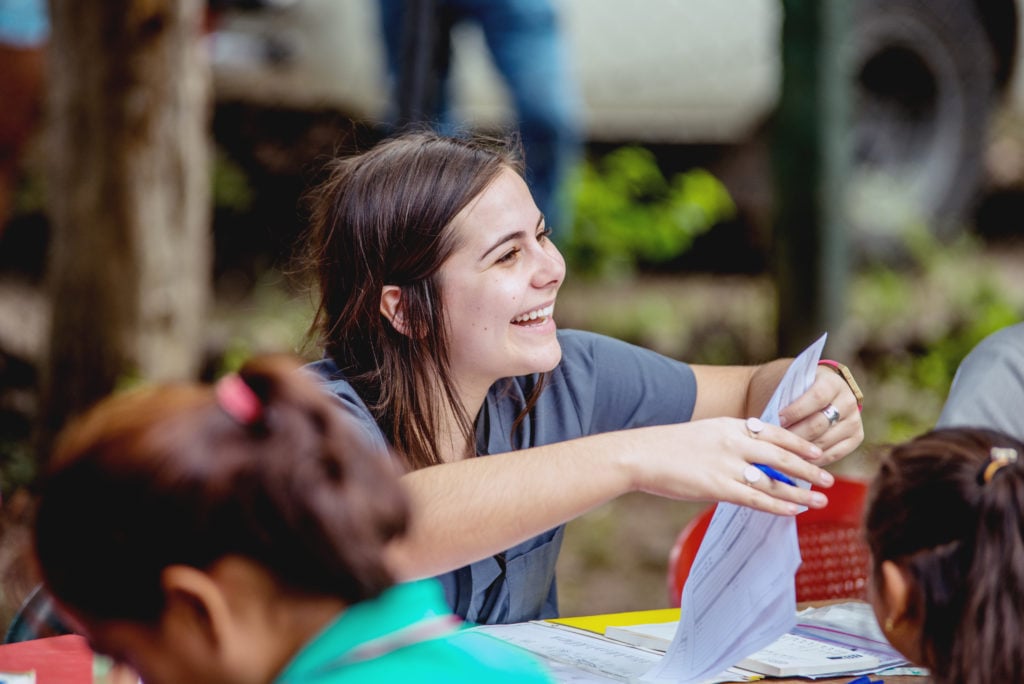
Triage: Medical History & Vitals
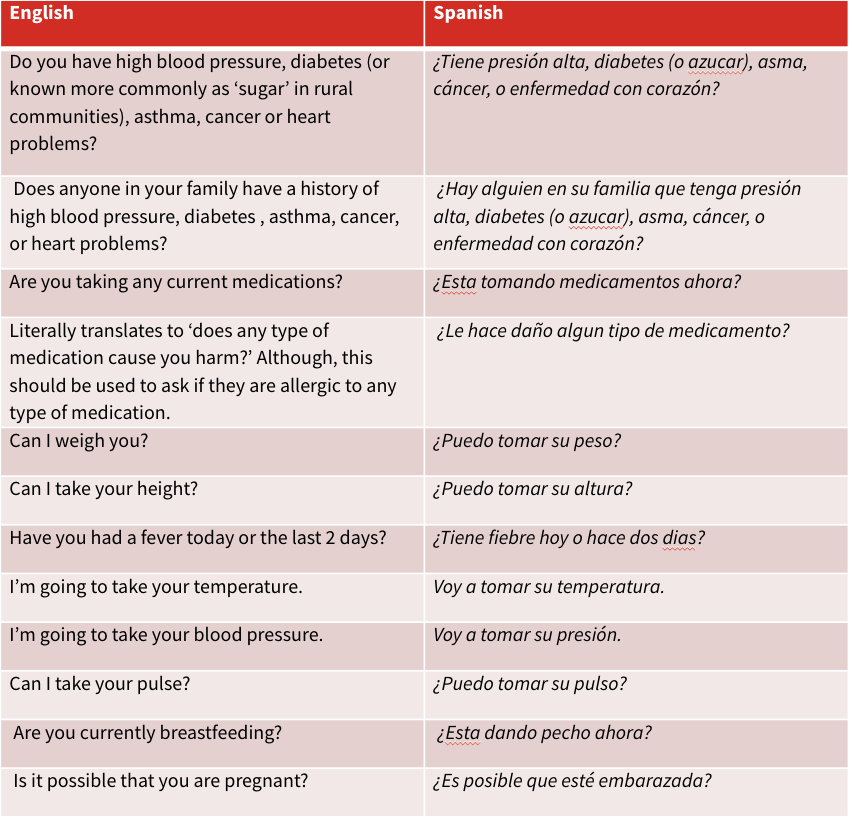
Triage: Common Responses and Verbs
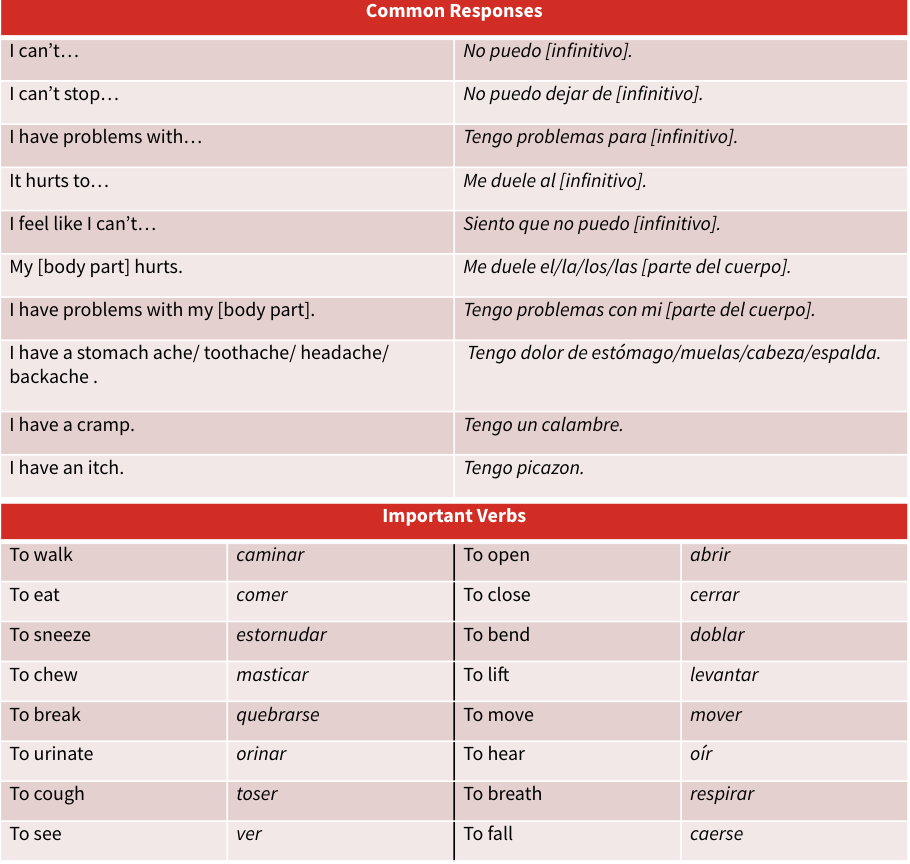
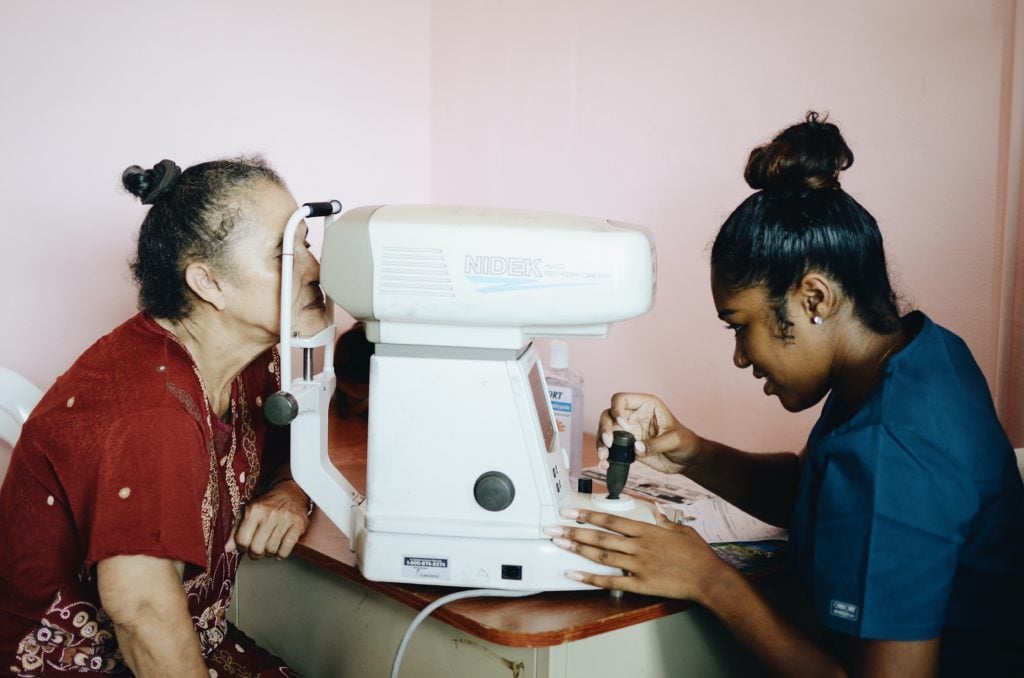
Triage: Basic Anatomy
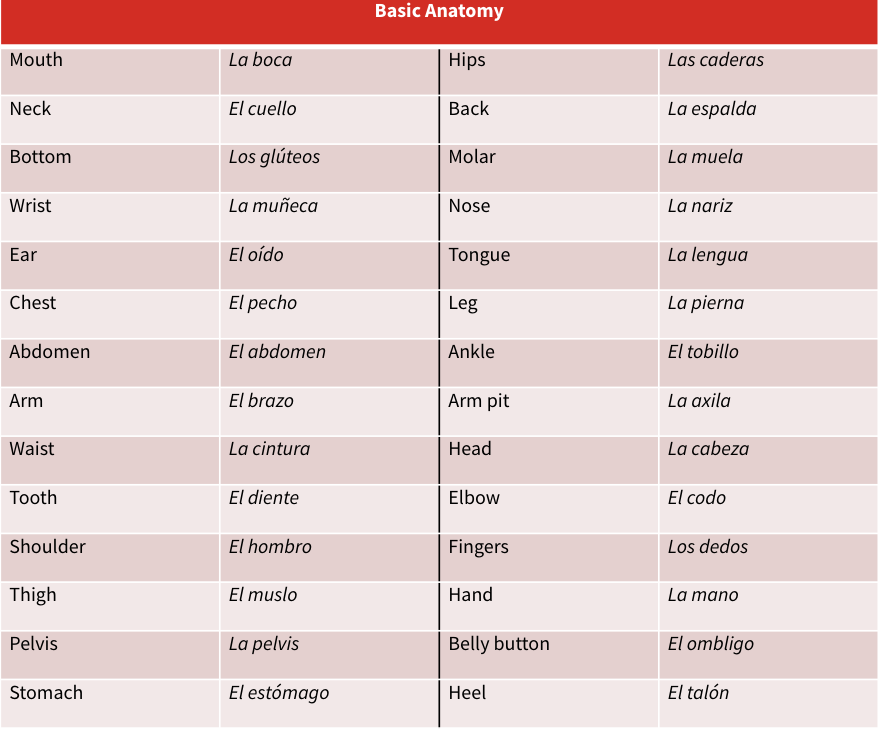
Pharmacy
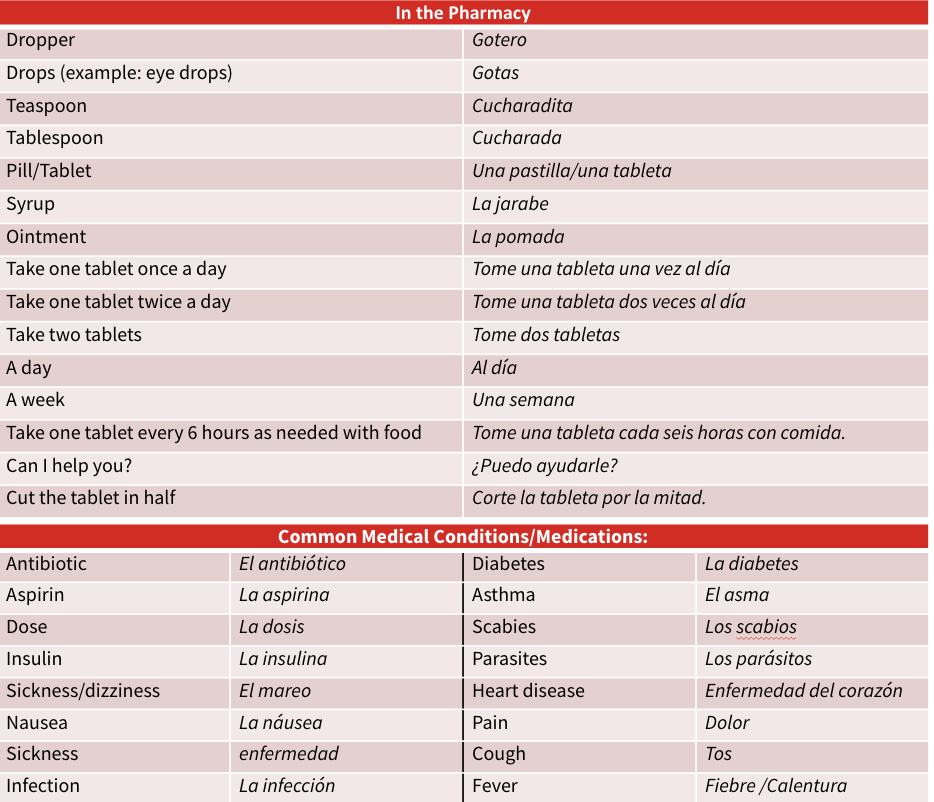
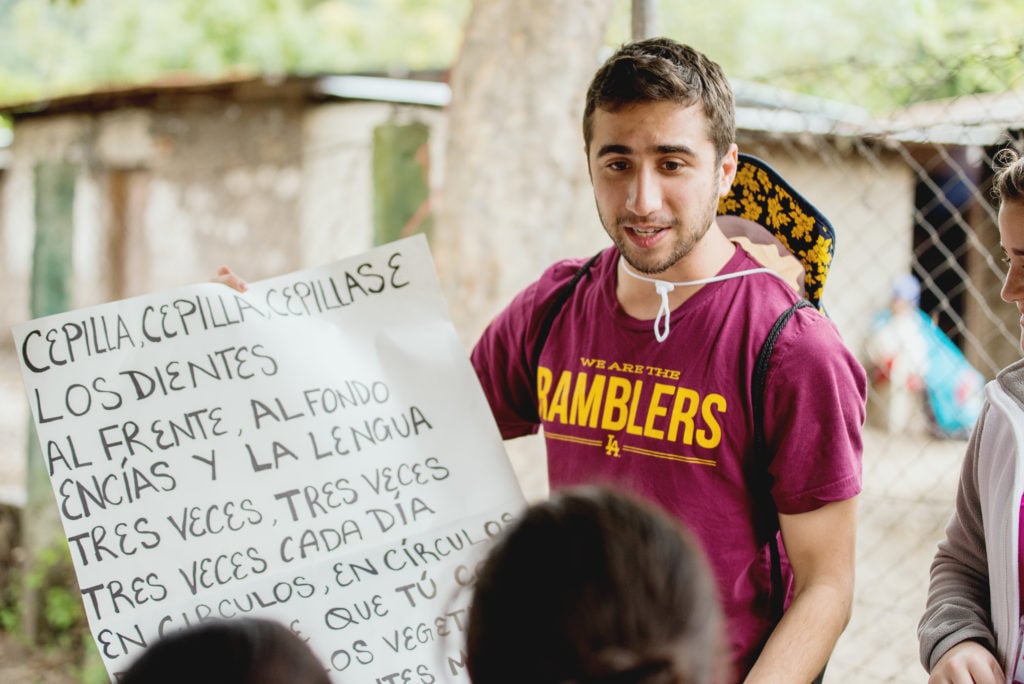
Cultural Preparation
Global Brigades offers unique language-learning opportunities for students participating in virtual Medical TeleBrigades or in-person Medical Brigades. To learn more about preparing for your next Medical Brigade, visit the Cultural Preparation section on our Volunteer Resources Site for more country-specific language guides and videos from Guatemala, Panama, and Honduras.
